Joe Biden holds to Kabul August 31 deadline despite criticism
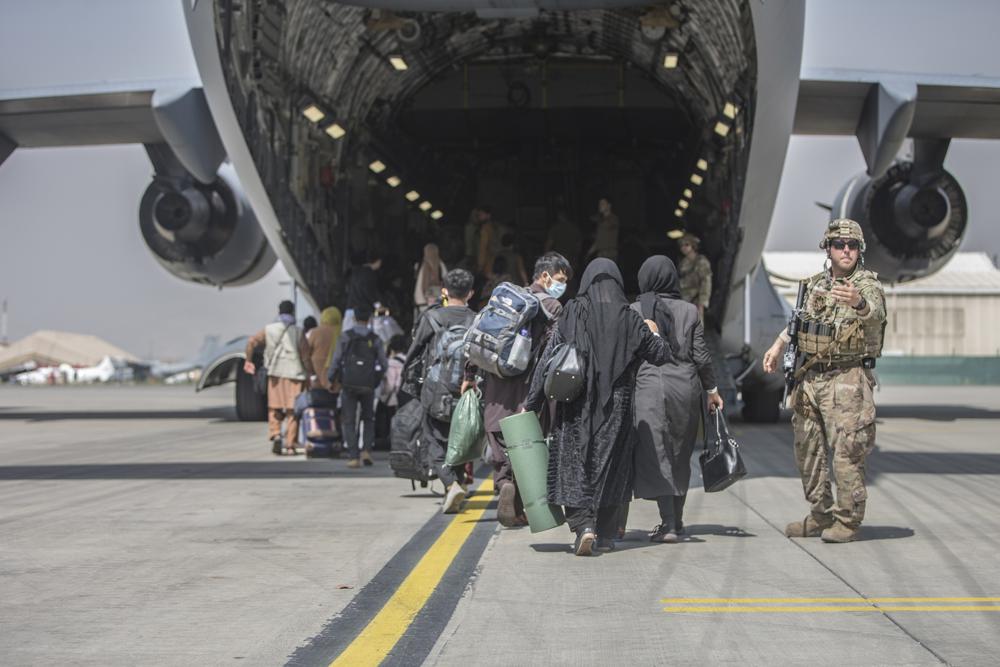
U.S. President Joe Biden declared Tuesday he is sticking to his August 31 deadline for completing a risky airlift of Americans, endangered Afghans, and others seeking to escape Taliban-controlled Afghanistan. The decision defies allied leaders who want to give the evacuation more time and opens Biden to criticism that he caved to Taliban deadline demands. “Every day we’re on the ground is another day that we know ISIS-K is seeking to target the airport and attack both us and allied forces and innocent civilians,” Biden said at the White House, referring to the Islamic State group’s Afghanistan affiliate, which is known for staging suicide attacks on civilians. He said the Taliban are cooperating and security is holding despite a number of violent incidents. “But it’s a tenuous situation,” he said, adding, “We run a serious risk of it breaking down as time goes on.” The United States in recent days has ramped up its airlift amid new reports of rights abuses that fuel concern about the fate of thousands of people who fear retribution from the Taliban and are trying to flee the country. The Pentagon said 21,600 people had been evacuated in the 24 hours that ended Tuesday morning, and Biden said an additional 12,000 had been flown out in the 12 hours that followed. Those include flights operated by the U.S. military as well as other charter flights. Biden said he had asked the Pentagon and State Department for evacuation contingency plans that would adjust the timeline for full withdrawal should that become necessary. Pentagon officials expressed confidence the airlift, which started on August 14, can get all Americans out by next Tuesday, the deadline Biden had set long before the Taliban completed their takeover. But unknown thousands of other foreign nationals remain in Afghanistan and are struggling to get out. The Taliban, who have wrested control of the country back nearly 20 years after being ousted in a U.S.-led invasion after the 9/11 attacks insist the airlift must end on August 31. Any decision by Biden to stay longer could reignite a war between the militants and the approximately 5,800 American troops who are executing the airlift at Kabul airport. In Kabul, Taliban spokesman Zabihullah Mujahid told a news conference the U.S. must stick to its self-imposed deadline, saying “after that, we won’t let Afghans be taken out” on evacuation flights. He also said the Taliban would bar Afghans from accessing roads to the airport while allowing foreigners to pass in order to prevent large crowds from massing. At the Pentagon, spokesman John Kirby said Aug. 31 leaves enough time to get all Americans out, but he was less specific about completing the evacuation of all at-risk Afghans. He said about 4,000 American passport holders and their family members had been evacuated from Kabul as of Tuesday. “We expect that number to grow in coming days,” Kirby said. With the full U.S. withdrawal looming, the Pentagon said several hundred U.S. troops have been withdrawn because they are no longer needed to complete the evacuation mission. Kirby said these are headquarters staff, maintenance personnel, and others. “It will have no impact on the mission at hand,” he said. It’s unclear how many Americans who want to leave are still in the country, but their status is a hot political topic for Biden. Some Republicans bristled Tuesday at the U.S. seeming to comply with a Taliban edict. “We need to have the top priority to tell the Taliban that we’re going to get all of our people out, regardless of what timeline was initially set,” said Rep. Steve Scalise of Louisiana. And Democratic Rep. Adam Schiff of California, chairman of the House Intelligence Committee, told reporters Monday that “it was hard for me to imagine” wrapping up the airlifts by the end of the month. One of the main refugee groups resettling Afghan evacuees in the United States said many people, including some American citizens, still were finding it impossible to get past Taliban checkpoints and crushing throngs outside the airport. “The United States cannot pat itself on the back for a job half-done,” said Krish O’Mara Vignarajah, president and CEO of Lutheran Immigration and Refugee Service. Biden decided in April that he was ending the U.S. war, which began in October 2001. Former President Donald Trump had earlier agreed in negotiations with the Taliban to end the war in May. However, Biden waited until the Taliban had swept to power this month, following the collapse of the U.S.-backed government and its army, to begin executing an airlift. Tragic scenes at the airport have transfixed the world. Afghans poured onto the tarmac last week and some clung to a U.S. military transport plane as it took off, later plunging to their deaths. At least seven people died that day, and another seven died Sunday in a panicked stampede. An Afghan soldier was killed Monday in a gunfight. British Prime Minister Boris Johnson said the Group of Seven nations will not recognize a Taliban government unless it guarantees people can leave the country if they wish, both before and after the August deadline. A day earlier, the director of the U.S. Central Intelligence Agency, William Burns, met with a top Taliban leader in Kabul. The extraordinary meeting reflected the gravity of the crisis and America’s need to coordinate with a Taliban group it has accused of gross human rights abuses. For now, the U.S. military coordinates all air traffic in and out of the Kabul airport, but the Taliban will take over thereafter the U.S. pullout. Meanwhile, a U.S. official said Burns, the CIA director, met with Taliban leader Mullah Abdul Ghani Baradar — an extraordinary moment for the U.S. spy agency, which for two decades targeted the Taliban in paramilitary operations. It was not clear what exactly they discussed. The CIA partnered with Pakistani forces to arrest Baradar in 2010, and he spent eight years in a Pakistani prison before the Trump administration persuaded Pakistan to release him in 2018
Bradley Byrne: Answering the call – fighting a phony impeachment
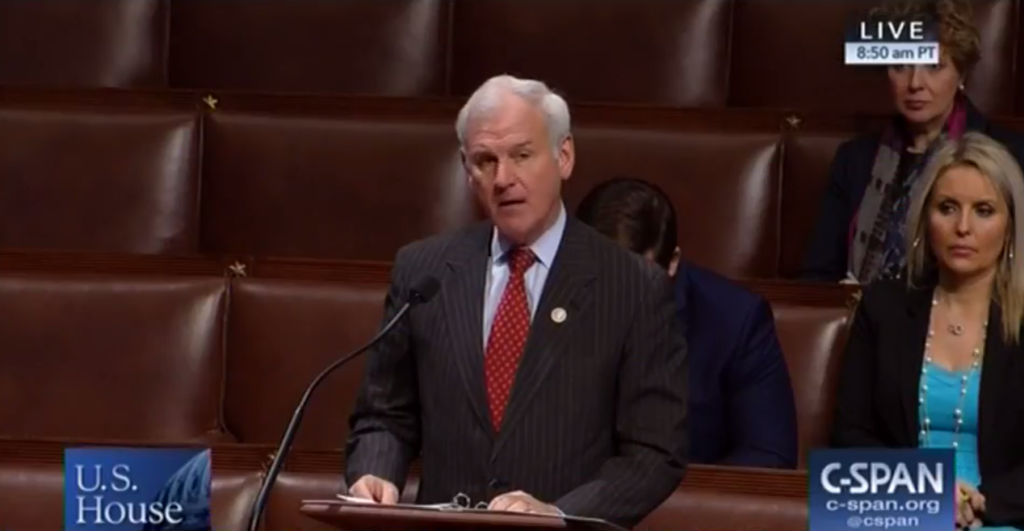
This year Democrats finally did what they have wanted to do since November 2016 – move to impeach President Donald Trump. This plan was politically motivated from the beginning, and I decided to lead the fight against it. This initial investigation into Donald Trump should never have begun in the first place. During the Obama Presidency, partisan government officials abused their power and used a phony dossier paid for by Democrat political operatives to justify the investigation. How could they run a phony investigation into then-candidate Trump while giving Secretary Hillary Clinton a pass on her many clear violations of the law? I introduced a bill called the Investigate the Investigators Act to get the answers the American people deserve. This bill would enable the Department of Justice to determine what President Barack Obama and his Administration knew and when they knew it and why numerous questionable decisions were made in 2016 and beyond. As expected, Nancy Pelosi had no interest in bringing to light answers that could undermine her impeachment scheme. One of the key facets of her plan was to hold proceedings in the House Intelligence Committee instead of the Judiciary Committee. The Intelligence Committee is one of the House’s smallest committees, where the Speaker essentially handpicks its members. Pelosi had a ready-made impeachment team loyal to her, led by Chairman Adam Schiff. Another characteristic of the Intelligence Committee is that it often examines classified material and has wide latitude to hold secret hearings to protect classified information. Schiff and Pelosi abused this to hold hearings in a classified meeting room called a SCIF, deep in the basement of the Capitol where the public and press could not access the facts. Even though the information they reviewed was not classified, the public was kept out. Several of my colleagues and I had enough. We entered the SCIF to observe the proceedings as we should be entitled to do as the people’s representatives. Amazingly, Adam Schiff shut down the hearings. But we kept up the pressure. Eventually Democrats agreed to release their secret transcripts. Let’s not forget what started this whole Ukraine mess – Hunter Biden’s shady foreign business dealings. While Hunter’s dad, Joe Biden, was Vice President of the United States, Hunter was making lucrative deals in countries like Ukraine and China. In Ukraine, where his dad was leading U.S. foreign policy efforts, Hunter was serving on the board of a sketchy energy company called Burisma Holdings. In the past, Joe Biden has bragged openly about successfully pressuring the Ukrainian government to remove Ukraine’s top prosecutor or risk losing United States assistance. That same prosecutor was allegedly investigating Burisma, the company on whose board Hunter Biden sat at the time! President Trump recognized the importance of rooting out corruption in a country to which we give millions of dollars in foreign aid, and he was totally justified in being skeptical of a new administration in a notoriously corrupt country. If the same facts in the Biden case occurred with someone named Trump or Byrne, Democrats would have already launched a full-scale investigation. I decided to expose this hypocrisy. In October, I introduced a House resolution calling for an investigation into the Bidens’ shady business dealings. Democrats will not consider it. The fact that they are continuing their sham Trump investigation while ignoring the real Biden scandal reveals their political motivations. Throughout this investigation, I’ve continued to lead the charge against Democrats’ phony charges and hypocrisy. Democrats will not let up working to remove President Trump from office, even after he is acquitted by the Senate. You can rest assured I will continue to be a strong leader in the fight to protect President Trump.
Donald Trump wants drama, but GOP wants it over
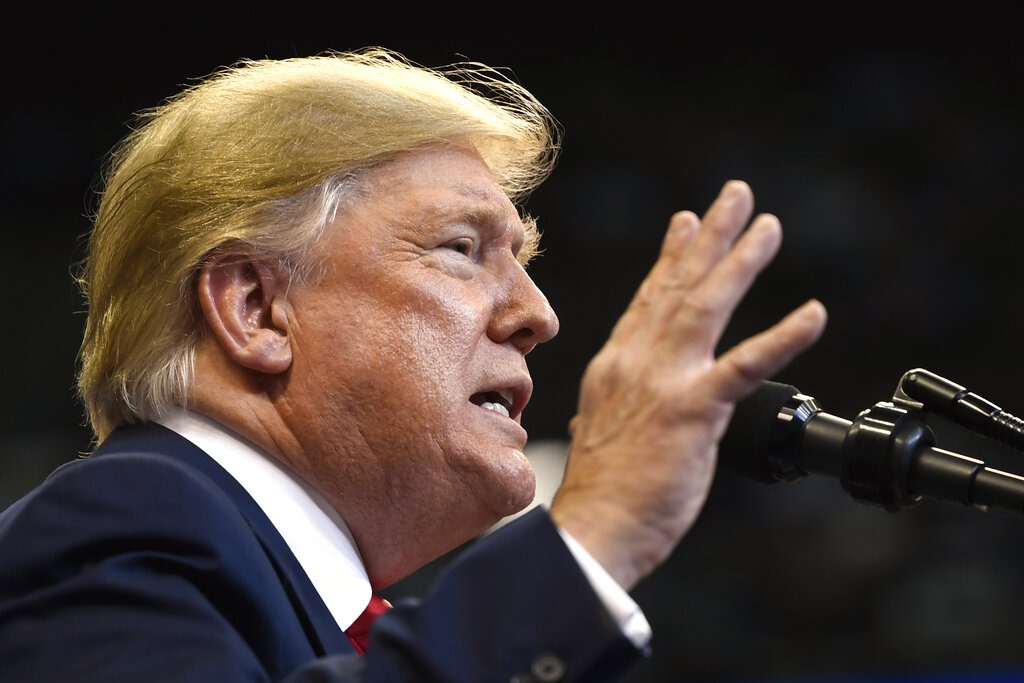
Donald Trump wants more than acquittal. He wants vindication. With impeachment by the House appearing certain, the president has made clear that he views the next step, a trial in the GOP-controlled Senate, as his focus. The president sees the senators not just as a jury deciding his fate, but as partners in a campaign to discredit and punish his Democratic opponents. His Senate allies aren’t so sure that’s a good idea. In recent weeks, Trump has devised a wish list of witnesses for the Senate trial, relishing the opportunity for his lawyers to finally cross-examine his accusers and argue the case that his actions toward Ukraine, including the July 25 call when he asked for a favor, were “perfect.” Trump and his allies have been building up the likely Senate trial, an effort to delegitimize the Democratic-controlled House’s impeachment process by contrast. In the Senate, the Trump team has argued, the president would get the opportunity to challenge witnesses and call some of his own, such as House Intelligence Committee Chairman Adam Schiff, the still-anonymous intelligence community whistleblower, or even Joe Biden and Hunter Biden. He sees that as a chance to embarrass Democrats, including the former vice president and 2020 Democratic rival, and use the friendlier ground to portray himself as the victim of a partisan crusade. “It is pretty clear the president wants a trial,” says Hogan Gidley, the principal deputy White House press secretary. “The president is eager to get his story out.” But it is increasingly clear that Senate Republicans, led by Majority Leader Mitch McConnell, have other ideas. McConnell, who is fiercely protective of his 53-47 Senate majority, has signaled that he wants none of the spectacle Trump desires. Instead he wants a swift trial, potentially with no new witnesses called. “Here’s what I would anticipate: The House managers would come over, make their arguments, the president’s lawyers would then respond. And at that point the Senate has two choices,” McConnell told reporters this week. “It could go down the path of calling witnesses and basically having another trial. Or it could decide — and again 51 members could make that decision — that they’ve heard enough.” In other words, the president, who is almost certain to be found not guilty by the Republican-controlled Senate, can win the hard way or the easy way. Senate Trump allies and advisers inside the White House have in recent days urged the president to temper his expectations and choose the path of least resistance. But Trump, according to three people familiar with the conversations, has responded by repeating his desire for a politically charged trial that drags the Bidens and others into the impeachment spotlight. Still, some aides believe Trump will ultimately relent to McConnell’s advice. Trump’s solicitation of Ukraine for investigations into the Bidens — while withholding military aide from the ally nation facing Russian aggression — forms the core of one article of impeachment against the president. His efforts to block the House investigation forms the second. On Capitol Hill, the emerging GOP consensus is that doing Trump’s defense his way would jeopardize a predictable outcome, test GOP’s fragile loyalties to him and open a Pandora’s Box of unanticipated consequences. “People are beginning to realize that could be a pretty messy and unproductive process,” Sen. Ron Johnson, R-Wis., said Wednesday. “If you start opening up to witnesses, you start opening up to all witnesses. And so I think the president’s got to really decide, to what extent does he want to start going down that road versus just making a strong case.” Democrats would be expected to retaliate by trying to call the president’s senior-most advisers, including acting chief of staff Mick Mulvaney and Secretary of State Mike Pompeo, and his personal attorney, Rudy Giuliani. Under Senate rules, McConnell’s ability to control the proceedings are limited. The Chief Justice of the United States, John Roberts, presides over the trial and any senator may be able to put a motion on witnesses up for a vote. That means defections by just a few GOP senators could thwart McConnell’s plans. With the Republicans slim majority, it’s not at all clear they want to start down the path of a full-blown trial. Should they try to call the whistle-blower or the Bidens to testify, they may not find enough votes of support from their ranks. At the same time, they would have to consider whether to accept or fend off witness requests from Democrats. McConnell also worries that a prolonged impeachment trial would not benefit the handful of GOP senators setting out in the new year on potentially tough reelection bids. Swing state Sens. Susan Collins in Maine, Cory Gardner in Colorado, Joni Ernst in Iowa and Martha McSally in Arizona are among those whose actions will be closely watched. They would much rather be talking about the economy or the pending U.S.-Mexico-Canada trade agreement than engaging in a prolonged, unpredictable impeachment trial. But Republicans also acknowledge they are unlikely to find the 51 votes needed to dismiss the charges against the president outright. Some vulnerable lawmakers and Trump skeptics, such as Sen. Mitt Romney of Utah who has said he is troubled by Trump’s actions, will insist on some semblance of trial. Comparisons are being made to the confirmation of Brett Kavanaugh to the Supreme Court, in which the Senate had to deal at length with allegations of sexual misconduct, though his confirmation by the Republicans was becoming increasingly apparent. “I think the American people are pretty tired of this,” says Sen. Pat Roberts, Republican-Kansas. “I think if we can honor the White House’s concern, OK. But let’s do it in a reasonable time limit. We don’t need six weeks like we did with Clinton.” Around the White House, a divide has emerged between aides and allies embracing the president’s call to use the Senate trial to get back at Democrats and those, particularly in the White House counsel’s office, advising him to heed the warnings of the GOP lawmakers.
House panel to vote on Ukraine report as Donald Trump mulls defense
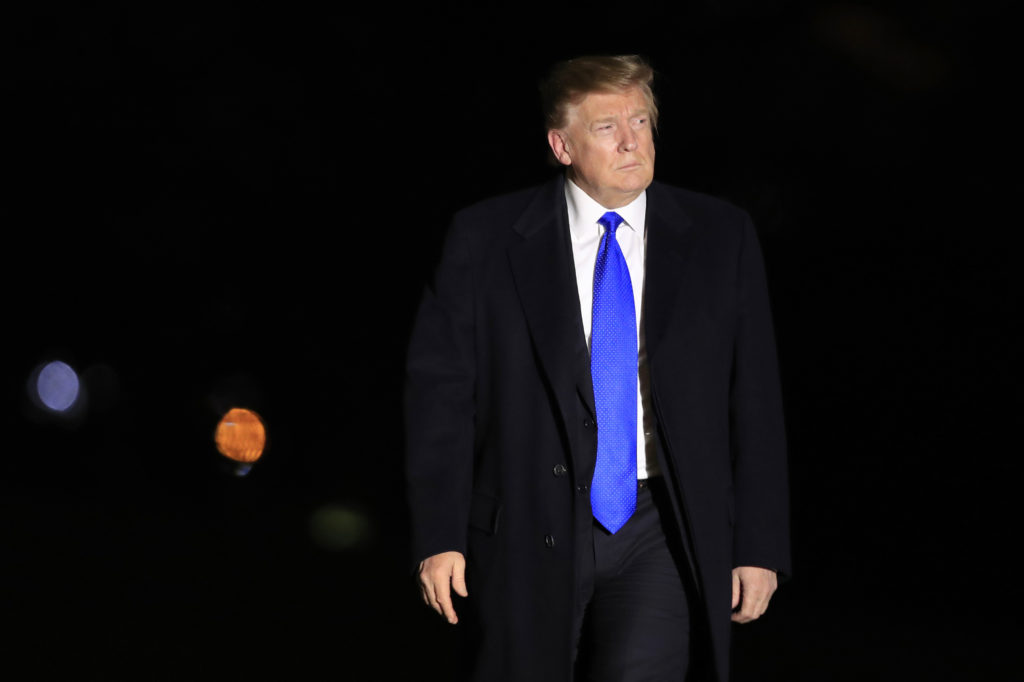
The House impeachment inquiry enters a pivotal stage this week, with investigators planning a vote Tuesday to approve their report making the case for President Donald Trump’s removal from office as he decides whether to mount a defense before a likely Senate trial. A draft report will be available for members of the House Intelligence Committee to view in a secure location before their planned vote on Tuesday, which would send their findings to the House Judiciary Committee to consider actual charges. Majority Democrats say the report will speak for itself in laying out possible charges of bribery or “high crimes and misdemeanors,” the constitutional standard for impeachment. Republicans want Democratic Rep. Adam Schiff, chairman of the Intelligence Committee, to testify, though they have no power to compel him to do so, as they try to cast the Democratic-led inquiry as skewed against the Republican president. “If he chooses not to (testify), then I really question his veracity in what he’s putting in his report,” said Rep. Doug Collins, the top Republican on the Judiciary Committee. “It’s easy to hide behind a report,” Collins added. “But it’s going to be another thing to actually get up and have to answer questions.” Schiff has said “there’s nothing for me to testify about,” that he isn’t a “fact” witness and that Republicans are only trying to “mollify the president, and that’s not a good reason to try to call a member of Congress as a witness.” Coming after two weeks of public testimony, the findings of the House Intelligence Committee report are not yet publicly known. But the report is expected to mostly focus on whether Trump abused his office by withholding military aid approved by Congress as he pressed Ukrainian President Volodymyr Zelenskiy to launch investigations into Trump’s political rivals. Democrats also are expected to include an article on obstruction of Congress that outlines Trump’s instructions to officials in his administration to defy subpoenas for documents or testimony. Democrats are aiming for a final House vote by Christmas, which would set the stage for a likely Senate trial in January. “I do believe that all evidence certainly will be included in that report so the Judiciary Committee can make the necessary decisions that they need to,” said Rep. Val Demings, Democrat – Florida, a member of both the Intelligence and Judiciary committees. She said Democrats had not yet finalized witnesses for the upcoming Judiciary hearings and were waiting to hear back from Trump on his plans to present a defense. “If he has not done anything wrong, we’re certainly anxious to hear his explanation of that,” Demings said. The Judiciary Committee’s first hearing is Wednesday. It’s expected to feature four legal experts who will examine questions of constitutional grounds as the committee decides whether to write articles of impeachment against Trump, and if so, what those articles will be. After weeks of deriding the process as a sham, Trump has yet to say whether he or his attorneys will participate in the Judiciary hearings. He’s previously suggested that he might be willing to offer written testimony under certain conditions. “The Democrats are holding the most ridiculous Impeachment hearings in history. Read the Transcripts, NOTHING was done or said wrong!” Trump tweeted Saturday, before falling silent on Twitter for much of Sunday. It’s unlikely that the president himself would attend on Wednesday, as Trump is scheduled to be at a summit with NATO allies outside London. The Judiciary Committee gave the White House until Sunday evening to decide whether Trump or his attorneys would attend. Trump must then decide by Friday whether he would take advantage of due process protections afforded to him under House rules adopted in October for follow-up hearings, including the right to request witness testimony and to cross-examine the witnesses called by the House. “Why would they want to participate in just another rerun?” asked Collins, noting that the Judiciary Committee previously heard from constitutional scholars on impeachable offenses during special counsel Robert Mueller’s Russia investigation. “This is a complete American waste of time of here,” Collins said, who is calling on the committee chairman, Rep. Jerrold Nadler, Democrat – New York, to expand the witness list to include those sought by Republicans. “This is why this is a problematic exercise and simply a made-for-TV event coming on Wednesday.” Still, Republican Rep. Tom McClintock of California, a Judiciary Committee member, said he believes Trump would benefit if he presents his own defense. “I think it would be to the president’s advantage to have his attorneys there. That’s his right,” he said. McClintock said he doesn’t believe Trump did anything wrong in the July 25 call with Zelenskiy that is at the heart of the investigation. “He didn’t use the delicate language of diplomacy in that conversation, that’s true. He also doesn’t use the smarmy talk of politicians,” McClintock said. To McClintock, Trump was using “the blunt talk of a Manhattan businessman” and “was entirely within his constitutional authority” in his dealings with Ukraine’s leader. Collins appeared on “Fox News Sunday” and Demings and McClintock were on ABC’s “This Week.” By Hope Yen Associated Press. Republished with the Permission of the Associated Press.
The Latest: Representative Devin Nunes reads White House memo at start of hearing
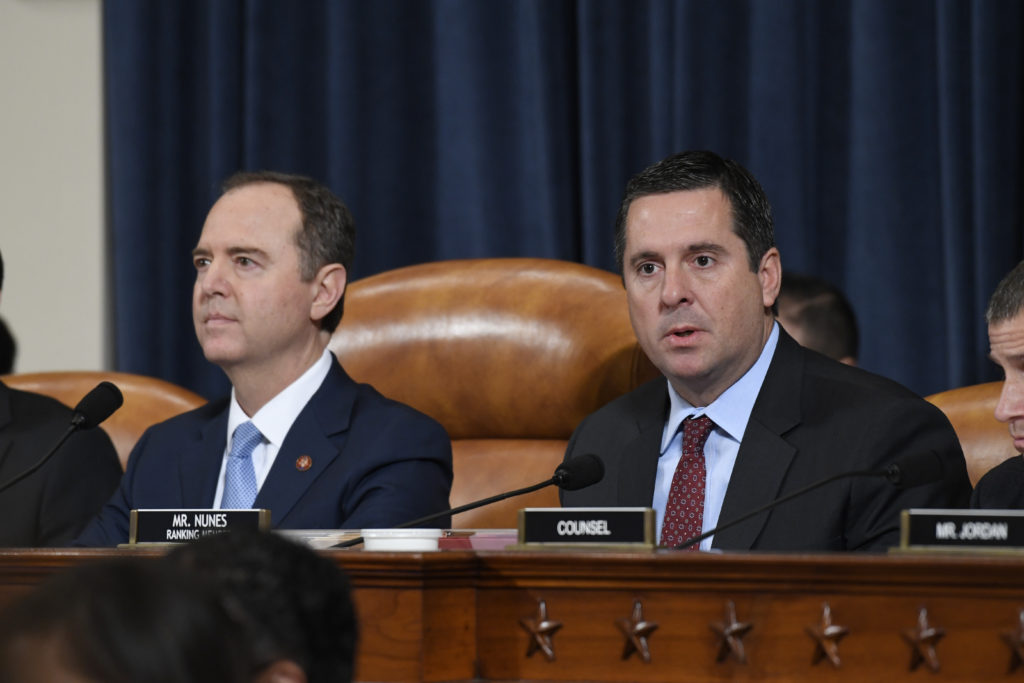
The Latest on President Donald Trump and House impeachment hearings (all times local): 9:35 a.m. The top Republican on the House Intelligence Committee has read aloud a memo circulated by the White House that summarizes the first conversation between President Donald Trump and his newly elected Ukrainian counterpart. The first conversation took place in April after the election of Volodymyr Zelenskiy. It consists largely of pleasantries and words of congratulations. The White House made a record of the conversation public at the start of the House impeachment hearing on Friday. Rep. Devin Nunes, the top Republican on the House Intelligence Committee, read the document aloud to suggest that there was nothing untoward in the conversation. Rep. Adam Schiff, the committee chairman, said Trump should also “release the thousands of other records that he has instructed the State Department not to release.” ___ 9:30 a.m. House Intelligence Committee Chairman Adam Schiff says former Ambassador to Ukraine Marie Yovanovitch was “smeared and cast aside” by President Donald Trump because she was considered an obstacle to his personal and political agenda. Opening the second public House impeachment hearing, Schiff said the question isn’t whether Trump could recall Yovanovitch but “why would he want to?” Yovanovitch testified behind closed doors last month that she was told to “watch her back” before she was ousted in May as Trump lawyer Rudy Giuliani led a shadow foreign policy. Schiff said pushback at the State Department failed when it became clear that Trump wanted her gone. Republican Rep. Devin Nunes said the hearings were “spectacles” for Democrats to “advance their operation to topple a duly elected president.” ___ 9 a.m. The House has opened a second day of Trump impeachment hearings with Marie Yovanovitch, the former U.S. ambassador to Ukraine who was suddenly recalled back to the U.S. by President Donald Trump. Yovanovitch is expected to testify about her ouster, which another diplomat has called a “smear” campaign against her by Trump allies. The live public hearings by the House Intelligence Committee are being held to determine whether Trump should be removed from office over his actions toward Ukraine. The investigation centers on Trump’s July 25 phone call when he asked the new Ukraine president for a favor — to investigate Democrats and potential 2020 rival Joe Biden — as the White House was withholding military aid to the Eastern European nation. Yovanovitch and others have described Rudy Giuliani, Trump’s personal lawyer, as leading what one called an “irregular channel” outside the diplomatic mainstream of U.S.-Ukraine relations. __ 8:35 a.m. The former U.S. Ambassador to Ukraine has arrived on Capitol Hill to testify in the Trump impeachment inquiry. Marie Yovanovitch is the witness for the second day of public hearings. She’s expected to tell lawmakers about her sudden ouster as President Donald Trump recalled the career ambassador back to the United States. Other diplomats testifying in the investigation have defended Yovanovitch, saying she was the target of “smear” campaign by the president’s allies. She has served both Democratic and Republican presidents. The rare impeachment inquiry is focused on Trump’s actions toward Ukraine. Democrats say it amounts to bribery, as the president withheld military aid to Ukraine while he pushed the country to investigate rival Democrats, including Joe Biden. Trump calls the probe a hoax and says he did nothing wrong. __ 12:15 a.m. The House will hear from a singular witness Friday in the Trump impeachment hearings: Marie Yovanovitch, the former U.S. ambassador to Ukraine who was targeted by the president’s allies in a “smear” campaign now central to the probe. The career diplomat, who served both Republican and Democratic presidents, is expected to relay her striking story of being suddenly recalled by Donald Trump and told to “watch my back.” It was all part of a swiftly developing series of events that sounded alarms about the White House’s shadow foreign policy. Friday is the second day of public hearings to consider removing America’s 45th president. Democrats and Republicans are hardening their messages to voters as they try to sway voter opinion amid a deeply polarized public. The House will hear from a singular witness Friday in the Trump impeachment hearings: Marie Yovanovitch, the former U.S. ambassador to Ukraine who was targeted by the president’s allies in a “smear” campaign now central to the inquiry. Republished with the permission of the Associated Press.
Democrats prep for open hearings, seek John Bolton testimony
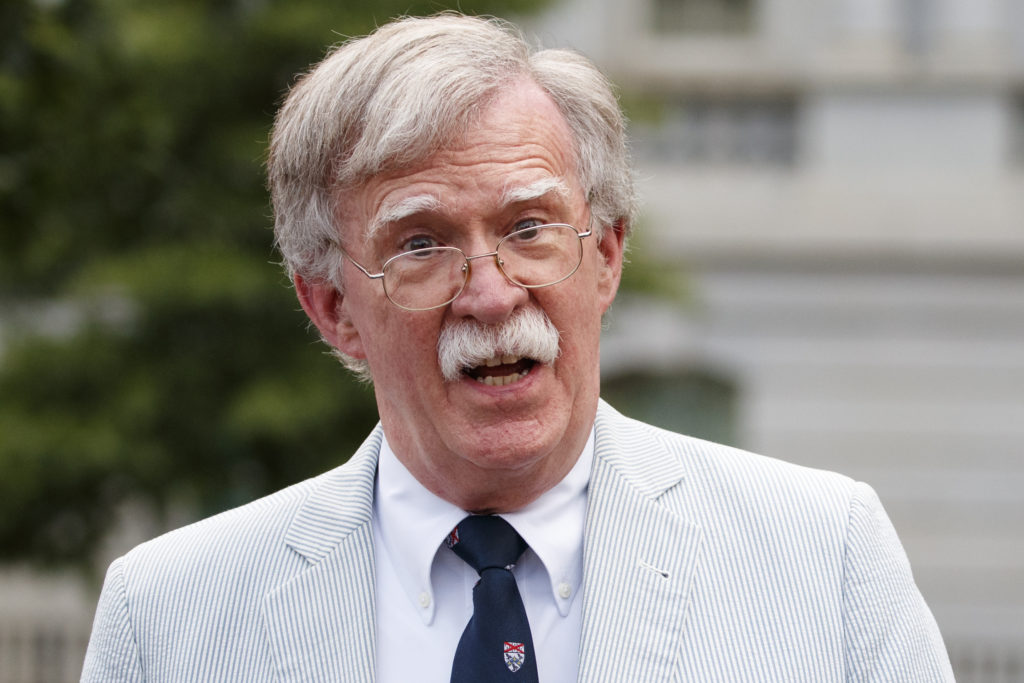
For only the fourth time in U.S. history, the House of Representatives has started a presidential impeachment inquiry. House committees are trying to determine whether President Donald Trump violated his oath of office by asking Ukraine to investigate political rival Joe Biden and his family, and to investigate the country’s involvement in the 2016 U.S. presidential election. A quick summary of the latest news and what’s to come: MOVING INTO PUBLIC VIEW The chairman of the House Intelligence Committee, Rep. Adam Schiff, told The Associated Press on Friday that the three committees leading the impeachment investigation plan to begin releasing transcripts of closed-door interviews as soon as early this week. The committees have interviewed current and former officials from the State Department and White House who have expressed concerns about Trump’s efforts to urge Ukraine to investigate Biden and his family. California Rep. Jackie Speier, a Democratic member of the Intelligence Committee, told CBS’ “Face the Nation” on Sunday that she expects one more week of closed-door interviews before committees move into open hearings. It’s so far unclear who will be asked to testify or how many hearings will be held. Leaders of the investigation say the hearings will be crucial to explain their inquiry to the American people. Schiff, Democrat-California said he hopes the testimony will eventually show “what the president did, why his misconduct is so serious” and how the “machinery of government” was pressed to help Trump influence the 2020 election. THE WHISTLEBLOWER A lawyer for the whistleblower who raised alarms about Trump’s dealings with Ukraine says his client has offered to answer written questions submitted by House Republicans.The surprise offer was made to Rep. Devin Nunes, the top Republican on the House Intelligence Committee. It would allow Republicans to ask questions of the whistleblower, who spurred the Democratic-led impeachment inquiry, without having to go through Schiff.Attorney Mark Zaid tweeted Sunday that the whistleblower would answer questions directly from Republican members “in writing, under oath & penalty of perjury,” part of a bid to stem escalating efforts by Trump and his GOP allies to unmask the person’s identity. Only queries seeking the person’s identity won’t be answered, he said. Nunes hasn’t commented on the proposal. Rep. Jim Jordan, an Ohio Republican and member of the House Judiciary Committee who has been highly critical of the impeachment process, said in a statement that written answers wouldn’t be sufficient to probe and cross-examine the whistleblower. The whistleblower raised concerns about Trump’s July 25 call with Ukrainian President Volodymyr Zelenskiy, in which he pressed Zelenskiy to investigate Trump’s political rivals. MORE BEHIND CLOSED DOORS As they prepare to go public, impeachment investigators are continuing to schedule private depositions. Democrats have called in 11 witnesses this week, including Energy Secretary Rick Perry and former national security adviser John Bolton. It’s unclear whether any of them will come to Capitol Hill. Perry is the first member of Trump’s Cabinet asked to appear before the House. His testimony is scheduled for Wednesday, according to an official working on the impeachment inquiry who spoke wasn’t authorized to publicly discuss the planning and spoke on condition of anonymity. Energy Department spokeswoman Shaylyn Hynes indicated Friday that Perry would not appear for the closed-door hearing but would consider testifying in a public session.On Bolton, Schiff said he “has very important information about the president’s misconduct that the American people should hear.” Other witnesses in the inquiry have described Bolton’s concerns as Trump urged the Ukrainian investigations. The committees have invited Bolton to appear Thursday but not issued a subpoena for his testimony. Trump says he’s not going to insist that Bolton not testify. Bolton’s lawyer has said he will not appear without a subpoena. “It’s up to him and it’s up to the lawyers,” Trump told reporters. The committees also have scheduled and subpoenaed other witnesses from the White House and State Department. They include David Hale, an undersecretary at the State Department who has been mentioned in previous testimony. Key witnesses last week included Alexander Vindman and Tim Morrison of the National Security Council. Morrison, who stepped down the day before his testimony, confirmed that military aid to Ukraine was held up by Trump’s demands for the investigations. But Morrison testified that there was nothing illegal, in his view, about the quid pro quo at the center of the impeachment inquiry. Vindman testified that he had raised concerns about Trump’s pleas. COURT BATTLES Democrats are also fighting impeachment battles in court, though they have indicated that they don’t want to delay the investigation as those cases proceed. One witness called by Democrats, former National Security Council deputy Charles Kupperman, has asked a judge to decide whether he must appear before Congress. Trump has said his administration will not cooperate, and Kupperman has said he is caught between the two. Kupperman’s lawyer, Charles Cooper, is also Bolton’s lawyer. He said Bolton could be added to the case. Republished with the permission of the Associated Press.
House committee subpeoneas Michael Flynn, Rick Gates in Russia probe
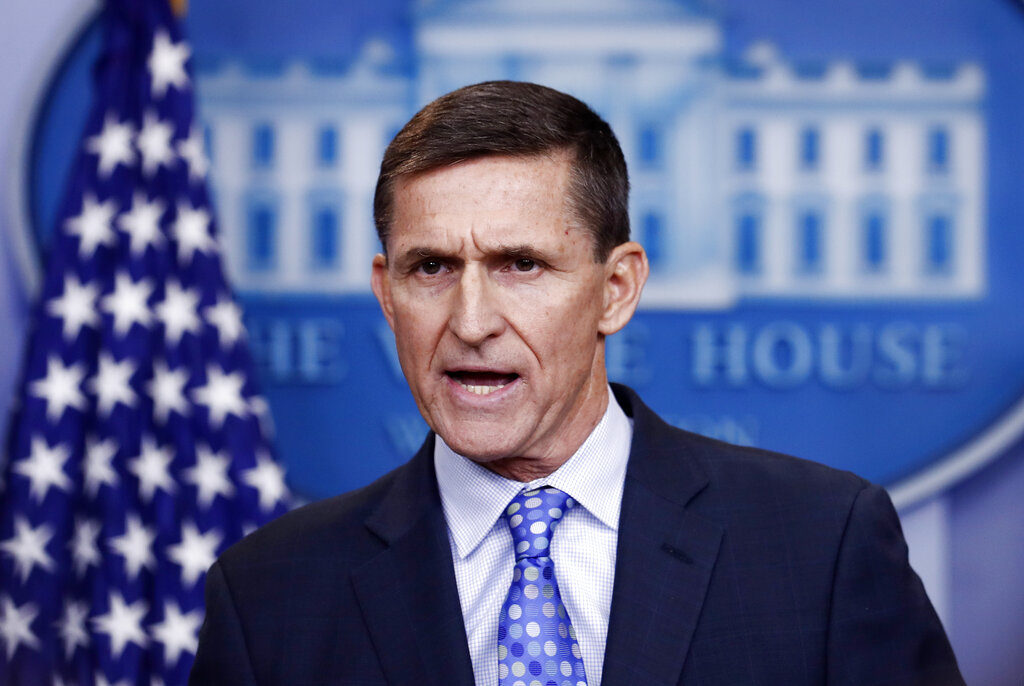
The House Intelligence Committee has subpoenaed former White House national security adviser Michael Flynn and former Trump campaign aide Rick Gates as part of its investigation into Russian interference in the 2016 U.S. presidential election. Committee Chairman Adam Schiff said Thursday the committee is examining “deep counterintelligence concerns” raised in special counsel Robert Mueller’s report and “requires speaking directly” with Flynn and Gates, who were important witnesses for Mueller’s investigation. “The American people, and the Congress, deserve to hear directly from these two critical witnesses,” the California Democrat said in a statement. “We hope these witnesses come to recognize their cooperation as being with the United States, not merely the Department of Justice.” The subpoena seeks documents and testimony from both men. Letters sent to their lawyers request that records be produced by June 26 and that they testify before the committee on July 10. Flynn admitted lying to the FBI about his conversations with the Russian ambassador to the United States and awaits sentencing. He was supposed to have been sentenced last December, but midway through the hearing abruptly asked for it to be postponed so that he could continue cooperating with the Justice Department and earn additional credit toward a reduced sentence. Schiff told reporters Thursday that “there are a whole host of issues that we want the opportunity to discuss.” “We have not had that opportunity over the past couple of years because of their involvement in their own cases and now potentially … in the cases involving others,” he added. Schiff told reporters the committee is interested in Flynn’s discussions with former ambassador Sergey Kislyak about sanctions imposed on Russia as well as his involvement in foreign business deals. Asked if he thought Flynn and Gates would appear, Schiff said, “I would hope that they would consider it valuable as a part of their cooperation, to show the court that they are doing everything that they can to assist the United States government, that they will also assist the Congress.” Flynn’s attorney, Sidney Powell, said in an email to The Associated Press, “The General is continuing to cooperate with the government,” but she declined to comment on the subpoena. Gates’ lawyer did not immediately return an email message about the subpoena. Powell, a former federal prosecutor who has been an outspoken critic of Mueller’s investigation, was recently hired by Flynn after he fired his previous lawyers. The change may herald a shift in Flynn’s legal strategy in the final stages of his case. Gates pleaded guilty to conspiracy and false statement charges related to Ukrainian lobbying and political consulting he did with ex-Trump campaign chairman Paul Manafort, who’s been sentenced to more than seven years in prison. Associated Press writer Susannah George contributed to this report. Republished with the permission of the Associated Press.
Democratic lawmakers release thousands of Russian Facebook ads
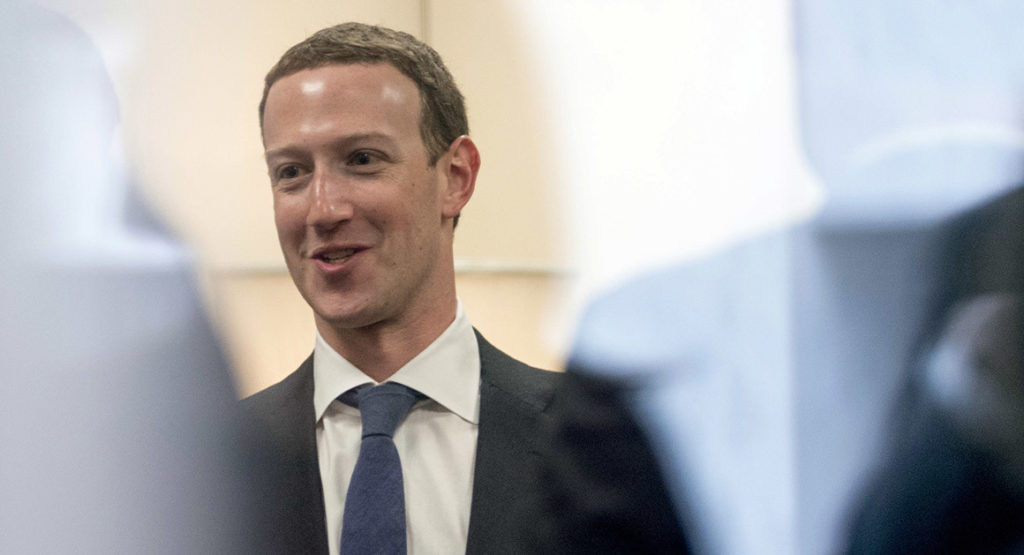
Democrats on the House intelligence committee have released more than 3,500 Facebook ads that were created or promoted by a Russian internet agency, providing the fullest picture yet of Russia’s attempt to sow racial and political division in the United States before and after the 2016 election. Most of the ads are issue-based, pushing arguments for and against immigration, LGBT issues and gun rights, among other issues. A large number of them attempt to stoke racial divisions by mentioning police brutality or disparaging the Black Lives Matter movement. Some promote President Donald Trump or Bernie Sanders, who ran against Hillary Clinton in the Democratic presidential primary. Few, if any, support Clinton. The intelligence committee Democrats released a sampling of the ads purchased by Russia’s Internet Research Agency last year, but they are now releasing the full cache of ads that Facebook officials turned over to the panel after acknowledging in September they had discovered the Russian efforts. The release of ads from early 2015 through mid-2017 does not include 80,000 posts that the agency also shared. Some of the ads are partially redacted, part of an effort by Facebook and the committee to protect unsuspecting people whose names or faces were used. An Associated Press review of the thousands of ads and their data shows how precisely — and sometimes randomly — the agency targeted them. Some ads designed to appeal to critics of immigration were targeted to users who liked specific Fox News hosts, WikiLeaks founder Julian Assange, “Old Glory” and the United States Constitution, among other words. Others were more narrowly targeted. Facebook users within 12 miles of Buffalo, New York, were directed to an event supporting justice for a black woman who died in a county jail. Another ad criticizing a Texas school teacher who lost her job after making racist remarks was aimed at adults living in Cleveland, Baltimore, St. Louis and Ferguson, Missouri. One ad that targeted African-Americans concerned about discrimination was only to be shown to users accessing Facebook on Wi-Fi, rather than cellular. There was no explanation as to why that was. Sometimes the targeting appeared to work — after a try or two. A January 2016 ad that promised news on “bad” refugees got five clicks when targeted at those interested in immigration or conservatism. But the same ad got 163 clicks when targeted at those interested in Syria, the Republican Party or politics. Others got many more clicks. A pro-patriotism ad created on June 23, 2015 featuring a stylized drawing of a bald eagle was viewed nearly 530,000 times and was clicked on 72,000 times. As the Russians attempted to pose as Americans, their language sometimes hinted at their origin. One ad railed against immigrants who “should prove that they are deserved to stay in the United States.” Another read: “Your life matter. My life matter. Black matters.” Facebook revealed in September that it had discovered the divisive ads, which were paid for in rubles. Ads were still running in July and August of 2017, weeks before Facebook made the effort public. In February, special counsel Robert Mueller indicted 13 Russians of an elaborate plot to disrupt the 2016 presidential election, charging several people associated with the Internet Research Agency with running a huge but hidden social media trolling campaign aimed in part at helping Trump defeat Clinton. The indictment was part of Mueller’s larger investigation into Russian intervention in the election and whether Trump’s campaign was involved. There has been no evidence that Trump’s campaign was in any way associated with the social media effort. The trove of ads released Thursday appears to back the assertion that the Russians wanted to hurt Clinton. Some spread rumors about her husband, former president Bill Clinton, or promote lies about her. Several depict Clinton behind bars. Hundreds of the ads ran after the election, continuing the effort to sow discord. A series of ads posted two days after Trump was elected urge his supporters to show up at Trump Tower in Manhattan to respond to the “massive crowds of libtards” who protested him. It targets people within 50 miles of New York City and provides the street address. That was one of many ads that attempted to set up events — sometimes on opposing sides of an issue. In May 2017, the fake group “United Muslims of America” ran seven ads promoting two June 3 protests against the war in Syria — one at Trump Tower, the other at the White House. One of those ads targeted people with interests in peace, human rights, feminism and pacifism and those who were “likely to engage with political content (liberal).” Facebook has said that more than 10 million people in the United States saw the ads, more than half of which ran after the election. Under fire from Congress, the social media giant has pledged improvements to its ad policies and enforcement. Facebook has made it easier to see the origins of ads, is forcing buyers to be more transparent about who they are and has worked to find more fake accounts, among other changes. California Rep. Adam Schiff, the top Democrat on the intelligence committee, said he was releasing the ads so it doesn’t happen again. “The only way we can begin to inoculate ourselves against a future attack is to see first-hand the types of messages, themes and imagery the Russians used to divide us,” he said. Republished with permission from the Associated Press.
House panel officially clears Donald Trump in Russia probe
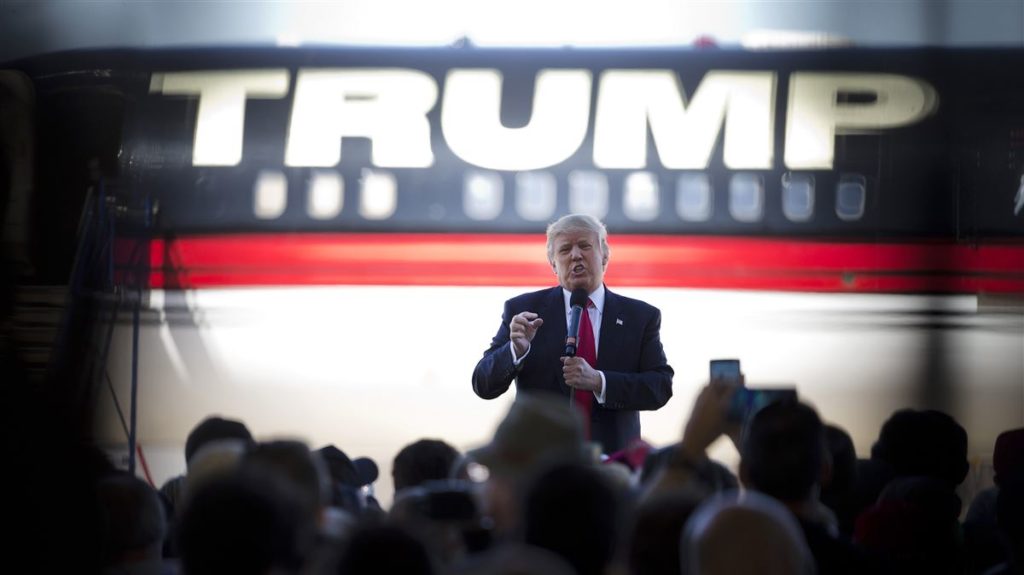
The Republican-led House intelligence committee on Friday officially declared the end of its Russia probe, saying in its final report that it found no evidence that the Trump campaign colluded with Russia in the 2016 presidential campaign. The report’s conclusion is fiercely opposed by committee Democrats, who say the committee did not interview enough witnesses or gather enough evidence to support its finding. The investigation began with bipartisan promise but ultimately succumbed to factional squabbling. Republicans had already announced the main findings last month. An investigation led by special counsel Robert Mueller is ongoing, as are probes led by the Senate intelligence and judiciary committees. The House panel did find that Russia sought to sow discord in the U.S. through cyberattacks and social media. Some portions of the public report are redacted for national security reasons. Republicans say they will pressure intelligence agencies to be able to release more information. Trump has repeatedly said there was “no collusion.” In a statement, Rep. Mike Conaway, R-Texas, who has been leading the investigation, said he was “extremely disappointed with the overzealous redactions” made by the intelligence agencies. He said many of the blacked out details include information already public such as witness names and previously declassified information. Conaway said the committee had pledged to be “as transparent as possible” with the report. “I don’t believe the information we’re releasing today meets that standard, which is why my team and I will continue to challenge the IC’s many unnecessary redactions with the hopes of releasing more of the report in the coming months,” he said. Republished with the permission of the Associated Press.
Intelligence briefings come with presidential nomination
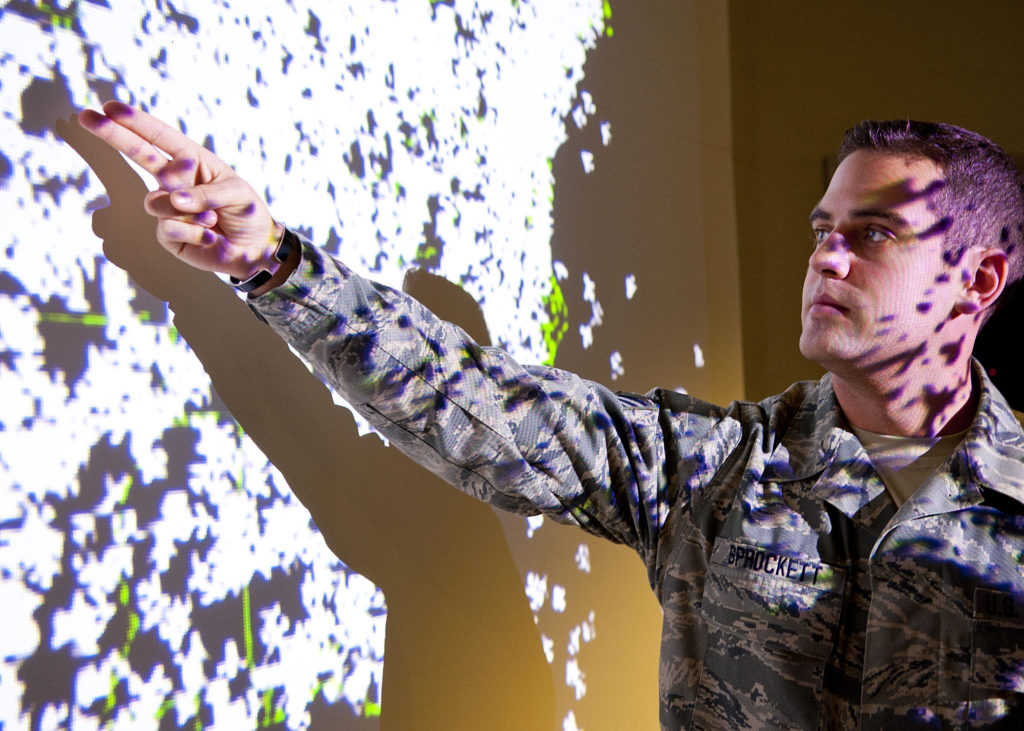
After the political convention confetti is swept away, a more sobering tradition of the presidential election begins: The regular, top-secret intelligence briefings for Donald Trump and Hillary Clinton, the likely Democratic nominee. Started by President Harry S. Truman, the briefings are designed to get the candidates, before they walk into the Oval Office, up to speed on problems around the globe. Truman, who was Franklin D. Roosevelt’s vice president for almost three months before Roosevelt died, first learned about the Manhattan Project to develop an atomic bomb only 12 days into his presidency, and he pledged not to leave any future commander in chief behind the ball. There’s an old political saw about how a White House candidate believes firmly in his or her foreign policy views – until that first top-secret briefing. In his recent book, former CIA Director Michael Hayden says these revelations are known as “aw s—” moments – as in, “Aw s—, wish we hadn’t said that during that campaign stop in Buffalo.” If Clinton is the Democratic nominee, much of the intelligence information she receives probably will sound familiar. As secretary of state until 2013, Clinton was one of President Barack Obama‘s senior advisers who were privy to the President’s Daily Brief – the highest level intelligence document prepared in the United States. The intelligence briefings could be eye-opening for New York businessman Donald Trump. The Republican’s loose-lipped campaign remarks have left some intelligence and foreign policy officials worried about whether he can keep the nation’s secrets. Trump has said in interviews that he’s looking forward to the briefings. Director of National Intelligence James Clapper, whose office arranges the briefings, was asked recently what he would want to say to Trump to help educate the political newcomer about foreign policy and perhaps even counter some of his ideas, such as temporarily banning Muslims from entering the United States. Clapper bristled and said the question falsely implied that the U.S. intelligence agencies would have a separate message for each candidate. “There’s a long-standing practice of briefing each of the candidates once they are officially designated. And that sort of shifts into higher gear, in terms of detail, after the president-elect is known,” Clapper said. “It’s not designed to shape anybody’s world view. We just brief as we normally would – each of them – and they (the briefings) have to be exactly the same.” But Rep. Adam Schiff, the top Democrat on the House Intelligence Committee, said he believes many people share his deep concern about Trump’s inexperience with handling classified information. “I would have to imagine that those concerns are fairly broadly held, so I wouldn’t be at all surprised if the intelligence briefings received by both candidates – which will be identical – will be at a more generalized level than they might otherwise be,” said Schiff, D-Calif. Clinton had her own issues with secret information while secretary of state. The FBI is investigating whether her use of a private server in her home to send and receive work-related emails – including 22 that have since been classified – broke any laws. Intelligence officials have started planning the briefings, which probably will begin right after the Democratic and Republican conventions in late July. After the Nov. 8 election, more detailed briefings for the president-elect will include information about U.S. covert operations. The sitting president has the final decision on how much information is disclosed to the president-elect; typically that includes access to the entire President’s Daily Brief. The ritual began in 1952, when Truman offered intelligence briefings to Republican nominee Dwight D. Eisenhower and Democrat Adlai Stevenson. CIA briefers were in a quandary after the 2000 election, when the country didn’t know for some time whether Republican George W. Bush or Democrat Al Gore had won. Bush had received a four-hour CIA briefing in September before the election at his ranch in Crawford, Texas, but he had never seen the President’s Daily Brief, which Gore saw daily as vice president. As their lengthy ballot recount dragged into December, President Bill Clinton authorized intelligence officials to share the so-called PDB with Bush, too. “The CIA was basically on the edges of their seats waiting for permission to start briefing Bush,” said David Priess, author of “The President’s Book of Secrets,” a history of the President’s Daily Brief. The first one on Dec. 5 almost didn’t happen because water poured through the ceiling of the CIA’s outpost in Austin, Texas, threatening efforts to reproduce the so-called PDB on sensitive communications equipment. Priess said Bush started receiving the PDB later than any other president in recent history, and he is the only person in the modern era to get PDB briefings before he technically was president-elect. The pre-election briefings for Eisenhower’s successor, John F. Kennedy, raised the issue of when presidential candidates should find out about pending U.S. covert operations – in this case what became the failed U.S.-sponsored Bay of Pigs invasion meant to topple Cuban leader Fidel Castro. Ten days after becoming president-elect, Kennedy was given the details at his family’s home in Palm Beach, Florida. Likewise, Trump or Clinton, as early as the day after the election, could learn more about operations against the Islamic State group, for instance, than they know now. Eisenhower, the first to receive the briefings, was commander of allied forces in Europe during World War II, so he was in on his share of secrets before winning the presidency. He received four briefings, including one on a train bound for Grand Central Station in New York, according to a book by former CIA inspector general John Helgerson, who extensively researched the briefings. Another briefing was conducted in Denver where Eisenhower stopped in at a rodeo and toured the grounds in a stagecoach with the CIA briefer riding “shotgun, up top with the driver,” Helgerson wrote. Republished with permission of The Associated Press


